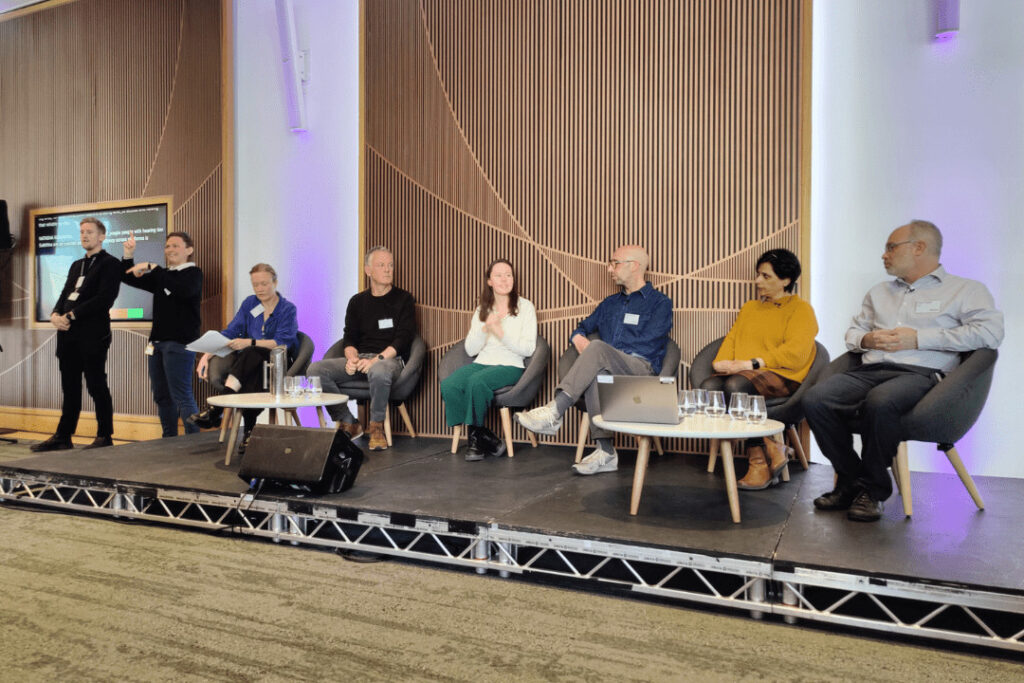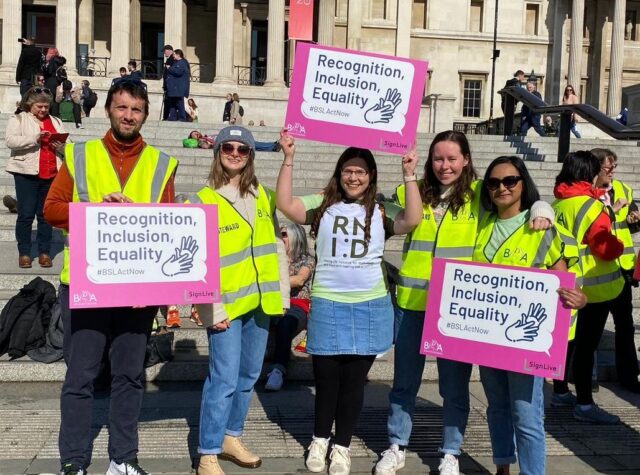
This week Ofcom, the broadcasting regulator, launched their updated Best Practice Guidelines on Access Services and TV Access Services Code. As part of our Subtitle It Campaign, we have been calling for the provision and quality of subtitles and signing to be improved, so we welcome the changes that Ofcom have made.
These documents give broadcasters and on-demand service providers recommendations on how to ensure the quality and usability of access services such as subtitles, audio description and signing.
Ofcom have expanded these best practice guidelines in anticipation of the Media Bill, currently passing through Parliament. The Media Bill includes Ofcom’s recommended mandatory minimum quotas for access services on on-demand services.
Last year, RNID responded to Ofcom’s consultation on their proposed changes to the Guidelines and Code, making the case that the needs of people who are deaf or have hearing loss should be central to considerations about how best to deliver subtitling and signing.
To raise awareness of the changes they have made, Ofcom held an event this week, bringing together representatives from different parts of the broadcasting industry who are responsible for delivering access services. RNID’s Inclusion Policy Advisor, Natasha Robinson was in attendance.
Attendees discussed how the sector can work together to improve the provision and quality of subtitles, signing and audio description, including:
- Increasing the opportunities to personalise the appearance or delivery of access services and ensure that audiences are aware of these features.
- Ensuring that accessibility is prioritised early on in the development process of making TV shows. This is to improve the delivery of access services and to consider broader ways in which shows can be made accessible.
- Considering how access services can enhance the content you are watching and whether producing access services are an art or a science.
Alongside representatives from Netflix, BBC, ITV and RNIB, Natasha Robinson represented RNID on a panel discussing the challenges and priorities for serving audiences with access needs.
RNID will continue to engage with broadcasters and on-demand services to make their services more accessible. We’ll also continue campaigning for the Government to pass the Media Bill as soon as possible, so that people who are deaf or have hearing loss, who use access services, can benefit from the quotas.
